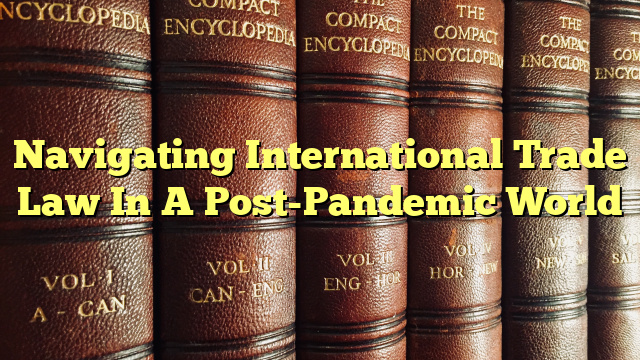Table of Contents
Impact of Global Pandemic on International Trade
The COVID-19 pandemic has had a significant impact on international trade. As governments around the world imposed shutdowns and travel restrictions to contain the spread of the virus, global trade plummeted. Supply chains were disrupted, forcing companies to rethink their sourcing strategies and find alternative sources of products and services. Trade finance, which had already been strained before the pandemic, became even more difficult to obtain, as banks pulled back from providing loans and businesses reevaluated their financing needs. With fewer buyers and sellers able to complete transactions, the volume of international trade decreased significantly.
The pandemic has also brought about an increase in protectionist measures, such as tariffs and export controls, which have further hindered international trade. Many countries have taken steps to restrict exports of certain products and services in order to protect domestic industries. These measures have made it more difficult for companies to access the goods and services they need, resulting in higher costs and more delays in the supply chain. As a result, companies are having to adjust their global trade strategies in order to remain competitive and keep costs down.
International Trade Laws
The laws governing international trade are complex, and vary from country to country. In the United States, the primary legal framework governing international trade is the World Trade Organization’s Agreement on Trade-Related Aspects of Intellectual Property Rights (TRIPs). The TRIPs agreement sets out the basic principles and rules for protecting intellectual property rights, such as copyrights, patents, trademarks, and geographical indications. It also sets out the procedures for resolving disputes between countries over alleged infringements of intellectual property rights.
Another important agreement that governs international trade is the World Trade Organization’s Agreement on Tariffs and Trade (GATT), which sets out the rules for negotiating and enforcing tariff commitments between countries. GATT also establishes rules governing import and export quotas, anti-dumping measures, subsidies, and safeguards. GATT has been key in helping to reduce tariffs and other barriers to international trade, and in creating a more level playing field for international trade.
Law of the World Trade
The World Trade Organization (WTO) is the international body responsible for overseeing and regulating international trade. The WTO is made up of 164 member countries and is the primary source of international trade law. The WTO sets out the rules and regulations governing international trade, such as rules on subsidies, tariffs, and other trade-related measures. It also serves as a forum for countries to resolve trade disputes and to negotiate agreements.
The WTO’s agreements form the basis for global trade rules, and provide a framework for countries to negotiate trade agreements. These agreements are designed to ensure that trade is conducted fairly and that each country is treated equally. The WTO also provides technical assistance and advice to countries on how to implement the agreements.
Navigating international trade law in a post-pandemic world is no easy task. As global trade continues to be disrupted by the pandemic, countries must find ways to ensure that their trading partners abide by the rules and regulations. By understanding the laws that govern international trade, companies can better position themselves to take advantage of new opportunities and remain competitive in a challenging global economy.

